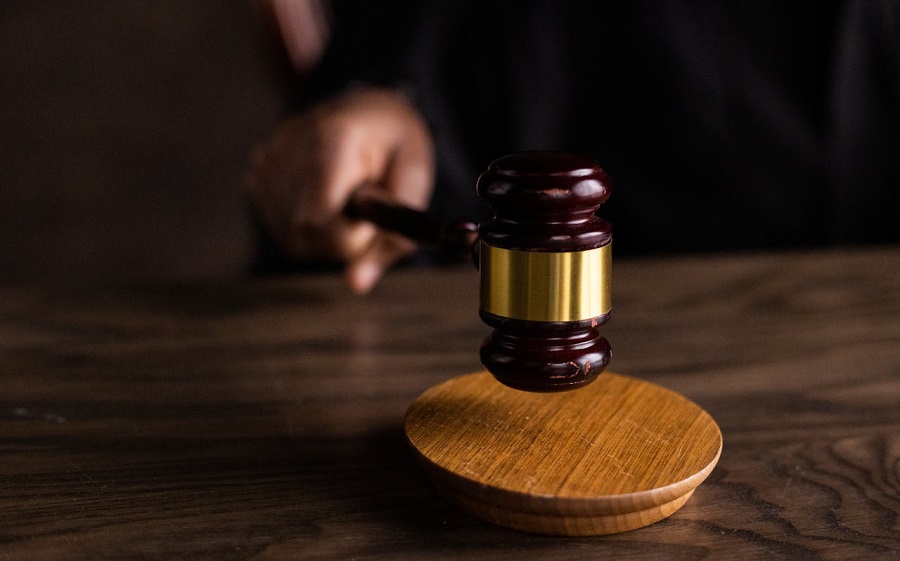How to revoke a Power of Attorney? Process and costs explained

That sinking feeling when you realise your Power of Attorney arrangement isn’t working out as planned is more common than you might think. Perhaps your chosen attorney has moved abroad, started making decisions you disagree with, or simply isn’t up to the task anymore. Maybe you’re the attorney yourself, feeling overwhelmed by responsibilities you never fully understood. The burning question keeping you awake: “Can I actually get out of this?” Before you make any moves that could backfire legally or financially, specialist Power of Attorney solicitors can navigate these treacherous waters with you.

Key Takeaway: Can I get out of a Power of Attorney arrangement I no longer want?
Discover whether your POA has already expired naturally and learn the exact revocation steps before you lose the right forever.
When does a Power of Attorney end naturally?
Before you worry about formally revoking a Power of Attorney, check if yours has already ended automatically. Several life events can terminate a POA without any action from you:
- If your attorney has died, lost mental capacity, or been declared bankrupt, your arrangement is already over.
- If you divorce your spouse or dissolve your civil partnership with someone who is your attorney, this typically ends the POA (unless your document specifically states otherwise).
- For Ordinary Powers of Attorney, your own loss of mental capacity automatically terminates the arrangement.
These automatic POA termination scenarios could save you time, money, and unnecessary legal procedures.
Is it possible to revoke a Power of Attorney before natural termination?
You can revoke a Power of Attorney that you created, but success depends on meeting specific legal requirements:
- All relevant parties must be formally notified.
- You must be able to communicate your decision clearly.
- You must have mental capacity at the time of revocation.
- The revocation must be properly documented and witnessed.
- You must understand what you’re doing and the consequences.
When can you revoke a Power of Attorney?
You can revoke a Power of Attorney in numerous real-world scenarios where the arrangement is no longer working for you:
- You suspect abuse or neglect of your interests.
- Your attorney is making decisions you disagree with.
- Your attorney is ignoring your wishes or preferences.
- Family relationships have deteriorated beyond repair.
- Your attorney is overwhelmed and wants to step down.
- Your attorney has developed their own health problems.
- You’ve reconciled with someone you previously excluded.
- Your attorney has moved abroad or become unreachable.
- You want to appoint someone more suitable or trustworthy.
- You’ve discovered financial mismanagement or suspicious transactions.
The step-by-step Power of Attorney revocation process
Revoking a Power of Attorney follows different paths depending on whether your POA is registered with the Office of the Public Guardian or remains unregistered.
For unregistered Powers of Attorney
These are simpler to revoke as they don’t involve government agencies or lengthy processing times:
Step 1: Create a Deed of Revocation
- Use headed paper or include your full name and address.
- State “I [full name] hereby revoke the Power of Attorney dated [date] appointing [attorney’s full name]“.
- Sign, date, and have witnessed by someone over 18 who isn’t related to you.
- Keep the original and make several certified copies.
Step 2: Notify your attorney immediately
- Send by Royal Mail Signed For or hand-deliver with receipt.
- Email a scanned copy as backup but rely on physical delivery.
- Their authority legally ends the moment they receive notice.
Step 3: Alert all third parties within 48 hours
- Contact banks, building societies, investment platforms, and insurance companies.
- Provide each with a certified copy of your revocation deed.
- Request written confirmation and new account security measures.
For registered Lasting Powers of Attorney
These require formal approval from the Office of the Public Guardian and involve more complex procedures:
Step 1: Obtain and complete OPG form LPA005
- Download from GOV.UK or request by phone (0300 456 0300).
- Provide detailed reasons (simple “change of mind” is sufficient).
- Include medical evidence if capacity might be questioned.
Step 2: Submit with £82 fee
- Pay by cheque, postal order, or debit card by phone.
- Processing typically takes 6-8 weeks.
- Request priority service (additional £100) if urgent.
Step 3: Coordinate notifications
- Inform attorney and institutions simultaneously when submitting to OPG.
- Explain that revocation is “pending OPG approval”.
- Follow up with official confirmation once received.
Step 4: Secure all documentation
- Collect original POA documents, bank cards, and any cheque books.
- Change online banking passwords and security questions ASAP.
Costs associated with revoking a Power of Attorney
Apart from the £82 Office of the Public Guardian fee for cancelling registered LPAs, several other costs can quickly mount up during the Power of Attorney revocation process:
- Direct revocation costs
These are the unavoidable expenses you’ll face during the revocation process:
- Recorded delivery postage: £3-£5 per recipient.
- Certified copy fees: £5-£15 per copy from solicitors.
- Notarisation services: £5-£20 per document if required.
- Deed of Revocation drafting: £150-£300 if professionally prepared.
- Solicitor consultation fees: £200-£500 per hour for specialist advice.
- Potential additional expenses
These costs may arise depending on your specific circumstances and complications:
- OPG priority processing: £100 extra for urgent cancellation.
- Bank charges for account restructuring: varies by institution.
- Travel costs for face-to-face meetings with attorney or solicitor.
- New banking security measures: potential card replacement fees.
- Medical capacity assessment: £300-£800 if mental capacity is questioned.
- Hidden costs to consider
These often-overlooked expenses can catch people off guard during revocation:
- Time off work for appointments and paperwork.
- Court fees (£154-£770) if disputes arise over the revocation.
- Emergency financial arrangements while revocation processes.
- Professional indemnity if attorney made poor decisions before revocation.
What if I am the attorney? Renouncing your role
Being appointed as someone’s attorney can feel overwhelming, and you might want to step down from these significant responsibilities. This is called renouncing your Power of Attorney role.
Your right to renounce:
You have an absolute legal right to resign from your attorney duties at any time.
- Cannot be forced to continue against your will.
- No permission needed from the donor or anyone else.
- Resignation takes effect immediately once properly executed.
- No requirement to provide detailed reasons for stepping down.
The formal renunciation process
Attorney renunciation requires specific legal steps to protect both you and the donor.
- Complete a formal Deed of Renunciation in writing.
- Sign and date the document in front of an independent witness.
- Notify the donor immediately (if they have mental capacity).
- Inform the Office of the Public Guardian for registered LPAs using form LPA005.
Essential notifications required
You must inform specific parties to avoid potential legal complications later:
- Other joint attorneys (if appointed to act together).
- Family members who may need to make alternative arrangements.
- Healthcare providers and social services if handling health decisions.
- Banks, investment companies, and financial institutions you’ve dealt with.
Your ongoing responsibilities
Even after renunciation, you have final duties that cannot be ignored:
- Provide a final account of all financial decisions made.
- Ensure no transactions are pending that could cause problems.
- Hand over any bank cards, cheque books, or access credentials.
- Return all original POA documents to the donor or their family.
Do I need a solicitor to revoke a Power of Attorney?
While not legally required, engaging a specialist wills, trusts, and estate planning solicitor is strongly recommended for most revocation scenarios; the risks of getting it wrong are simply too high.
Why you should use a solicitor:
Professional guidance can save you from costly mistakes and legal complications down the line:
- Provides crucial evidence trail if your decision is later questioned.
- Handles complex notification requirements across multiple institutions.
- Identifies potential challenges to your mental capacity before they arise.
- Protects against claims that revocation was invalid or improperly executed.
- Ensures your Deed of Revocation is legally watertight and properly executed.
The attorney’s perspective on revocation:
From an attorney’s viewpoint, proper legal revocation protects you from future liability claims. A solicitor-drafted revocation provides clear evidence that your authority has ended, preventing accusations of continued unauthorised actions. Many attorneys actually welcome professionally handled revocation as it gives them legal certainty about when their responsibilities ceased. Attorneys dealing with informal or unclear revocation attempts often continue acting out of legal uncertainty, potentially creating bigger problems for everyone involved.
FAQs
- Can I partially revoke a Power of Attorney to limit certain powers? No, revocation is all-or-nothing. You must revoke completely and create a new POA with different terms if you want to change the scope.
- What happens if my attorney dies but I haven’t been told? The POA automatically ends when your attorney dies. You should notify banks and institutions once you discover the death to prevent continued acceptance of instructions.
- Can I revoke a Power of Attorney that was made under pressure or duress? Yes, but you’ll need legal evidence to prove undue influence. This typically requires court involvement and specialist legal help.
Revoking a Power of Attorney is your legal right, but timing is everything. Whether dealing with unregistered arrangements or navigating OPG processes, professional guidance protects against costly mistakes that could haunt you later.
Contact Qredible’s POA specialists!
Qredible’s network of specialist solicitors can guide you through the process safely and efficiently, protecting your interests every step of the way.
KEY TAKEAWAYS
- Powers of Attorney can end naturally through death, incapacity, bankruptcy, or divorce, potentially saving you from unnecessary revocation procedures and costs.
- You retain the absolute right to revoke a Power of Attorney while you have mental capacity, but this window can close permanently if your cognitive abilities decline.
- The revocation process differs significantly between unregistered and registered arrangements, with Lasting Powers of Attorney requiring formal Office of the Public Guardian approval and additional fees.
Articles Sources
- gov.uk - https://www.gov.uk/power-of-attorney/end
- apw-ifa.co.uk - https://www.apw-ifa.co.uk/how-to-cancel-or-change-your-lasting-power-of-attorney/
- autumna.co.uk - https://www.autumna.co.uk/blog/how-to-revoke-a-power-of-attorney/
- elizabethmiddletonsolicitors.co.uk - https://elizabethmiddletonsolicitors.co.uk/revocation-of-power-of-attorney-a-comprehensive-guide/
Do you need a solicitor?
Find a solicitor on Qredible in just a few easy steps

















